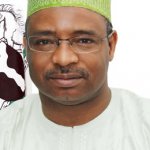
As a restaurant owner in the Fagba area of Lagos discovered to her chagrin last week, poverty has reached alarming levels in the country, even in the supposedly well-to-do communities. Her morning’s consignment of cooked rice, meat and stew was looted by a group of hungry and desperate villains. They made away with all the prepared food and stew and the early callers at the restaurant, on whose behalf the restaurateur had laboured from midnight till dawn, had to look for alternatives. A cynical observer said: “I have witnessed four similar incidents in the past few weeks. People are hungry and what they have resorted to is breaking into people’s shops to steal foodstuff, soup and meat. If you catch them, they will explain to you that they are hungry and have no other option. Members of the family who stole my co-tenant’s food were even asking whether they could still get more to eat.”
The boundary between robbery and enforced benevolence seems blurred in the Nigerian conundrum, even if stealing technically remains taking things that belong to someone else without authorisation. It may however be pertinent to draw a parallel between these restaurant thieves and the typically corrupt office-holder who pillages the public treasury, taking into cognisance the only difference, namely that the latter is usually honoured while the former is roundly condemned. In any event, these incidents really speak to the urgency of the problem of poverty and the deep chasm between the rich and the poor in the country. These restaurant thieves are hungry and desperate, and there is a desperate need for a solution.
The much touted national wealth from crude oil is proving to be inadequate in the face of the humongous national debt and the dearth of creative and proactive socioeconomic and welfare polices. There is also a desperate need for the political will to enforce compliance with policies spurred by the dire situation. The axiom, ‘a fool and his money are soon parted,’ is equally valid for nations and the earlier the ruling elite realise this, the better for the country. It may be only routine to demand for the investigation and prosecution of the incident of restaurant robbery in Lagos but the incident was merely a symptom of the rot in the polity. There is scarcely any difference in the desperation of these restaurant thieves and the desperation of the office-holders and technocrats who pillage the public treasury.
The ruling elite really needs to take governance more seriously than it has hitherto. Politics can only be played in an existing country. As it is now, it would seem that the political class is superintending over an entity already assailed by worsening poverty. Taking governance more seriously is a step in their own enlightened self interest because any contrary step will assure collective destruction. The emergence of restaurant thieves is a symptom of the depth to which human beings are ready to sink in the name of survival. It is almost impossible for desperation and hunger to cohabit with any form of security. That is why governments at all levels must address poverty squarely, urgently and comprehensively.
WATCH TOP VIDEOS FROM NIGERIAN TRIBUNE TV
- Let’s Talk About SELF-AWARENESS
- Is Your Confidence Mistaken for Pride? Let’s talk about it
- Is Etiquette About Perfection…Or Just Not Being Rude?
- Top Psychologist Reveal 3 Signs You’re Struggling With Imposter Syndrome
- Do You Pick Up Work-Related Calls at Midnight or Never? Let’s Talk About Boundaries





